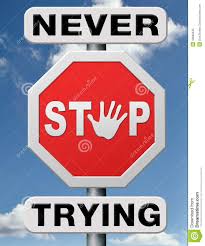AnxietyPath is a safe community environment supported by professional counselors. We are a free self help destination to receive support and guidance for recovery from anxiety and phobias
Managing Your Time During Anxiety Recovery Process
 Anxiety levels increase when there is downtime. What happens is that once we have a single anxious thought, we continue to follow up that thought with additional thoughts. This allows the anxiety to increase and continue. Anxiety recovery depends on reconditioning our thought habits. And working on learning to manage your time for anxiety recovery is one of the best ways to get started.
Anxiety levels increase when there is downtime. What happens is that once we have a single anxious thought, we continue to follow up that thought with additional thoughts. This allows the anxiety to increase and continue. Anxiety recovery depends on reconditioning our thought habits. And working on learning to manage your time for anxiety recovery is one of the best ways to get started.
The tools & techniques are used to break the anxious thought process once it begins, and to recondition our behavior.
One thing we can do to help slow the progression of our anxious thoughts is to manage our time. I always tell my clients, “manage your time, before your time controls you”. Managing our time is by far the single most effective thing we can do to ward off anxiety and create anxiety recovery.
Often we drift through the day on autopilot. We do what is necessary to get through the day. Often we just go through the day and our daily business with very little thought put into it. Our actions and behavior are typically based on our emotions. There are some obvious things we do regardless how we feel about them (work, school), but most of what we do is gravitate towards what we like, and try to avoid what we do not like. You may be wondering why that behavior is “bad”.
That kind of behavior reinforces our anxiety-driven thoughts.
Anxiety is an emotion. Anxiety is fear. When we go through the day emotionally, we allow our emotions to dictate what we do. When we have an anxiety disorder, fear is our dominant emotion. Therefore getting through the day “emotionally” will not do anything to help with anxiety recovery.
I am not suggesting that we run through the day keeping us distracted and busy all day aimlessly. Even if this was remotely possible, it wouldn’t help.
The best way to manage our time to schedule our free time, and keep to the schedule. At night make a schedule for the next day. Write down the things you know you have to do; get out of bed, meals, and work/school. Even things you know that you want to do, such as; snacks, watching television, practicing tools & techniques (Point #4 – Employ), etc. Try to create a realistic schedule from morning to night. Certainly, you will not include everything, but try to create a schedule that does not allow for large amounts of free time to remain unchecked. The more time you have to veg-out aimlessly, the more time your anxiety can sustain itself (and grow).
You can also try to schedule healthy foods, exercise, and drinking adequate amounts of water. I know this may sound unnecessary, but it’s important to keep in mind what is important to our health; physically, mentally and emotionally.
In the morning when the alarm goes off, get out of bed immediately. Hitting the snooze and staying in bed is a perfect time for your anxiety to get started up. Getting out of bed immediately is extremely beneficial in setting the tone for the day and in slowing the anxiety levels from rising.
And then go through the day the best you can paying attention to your schedule. Trying your best to manage your life from an intellectual point of view, rather than an emotional one.
If you do not “feel” like doing something that you know is healthy for you, then this is your emotions controlling your behavior. Intellectually you know that eating at least one healthy meal per day and drinking enough water is good for you, but when we fall short of doing what is best for us, that is because of emotional thinking.
Our anxiety disorders are not looking out for our best interests. By managing your time you are taking a proactive stance in taking back your life. This is very important in creating recovery from anxiety disorders.
Fear To Fearless
Categories
© 2020 AnxietyPath Powered by G SOUL INC